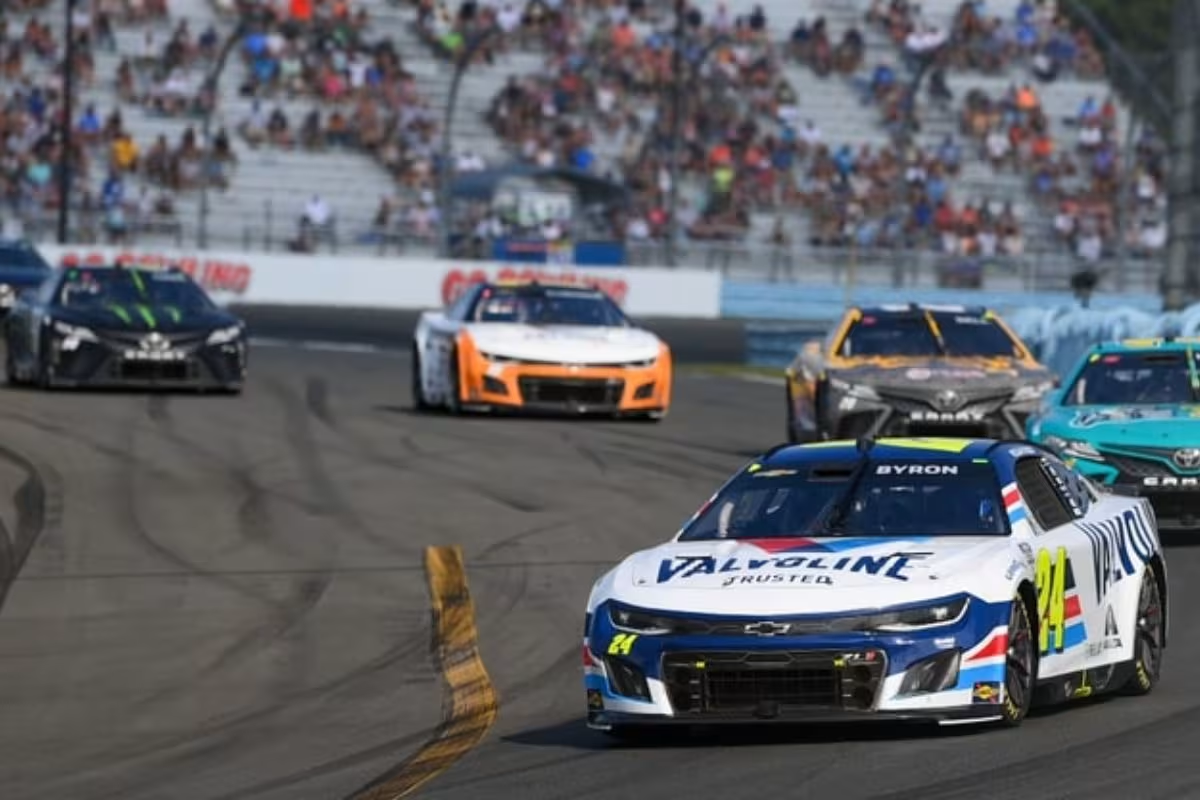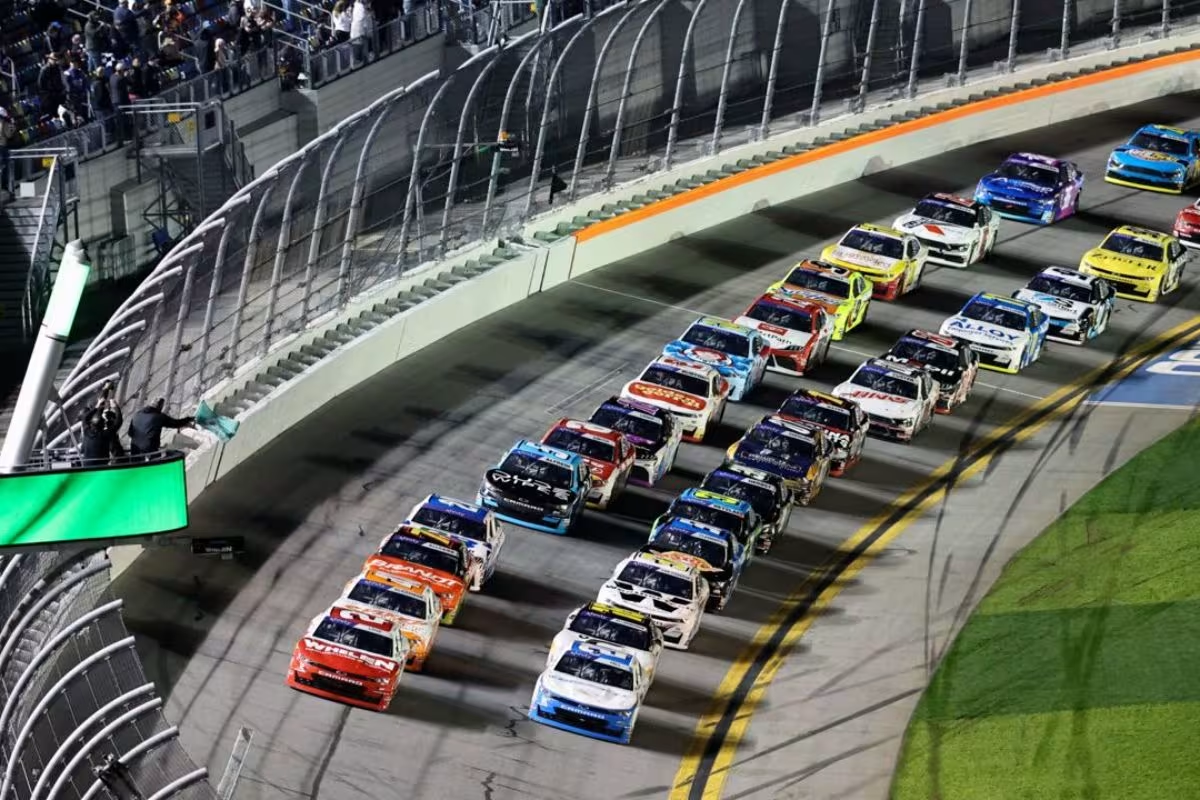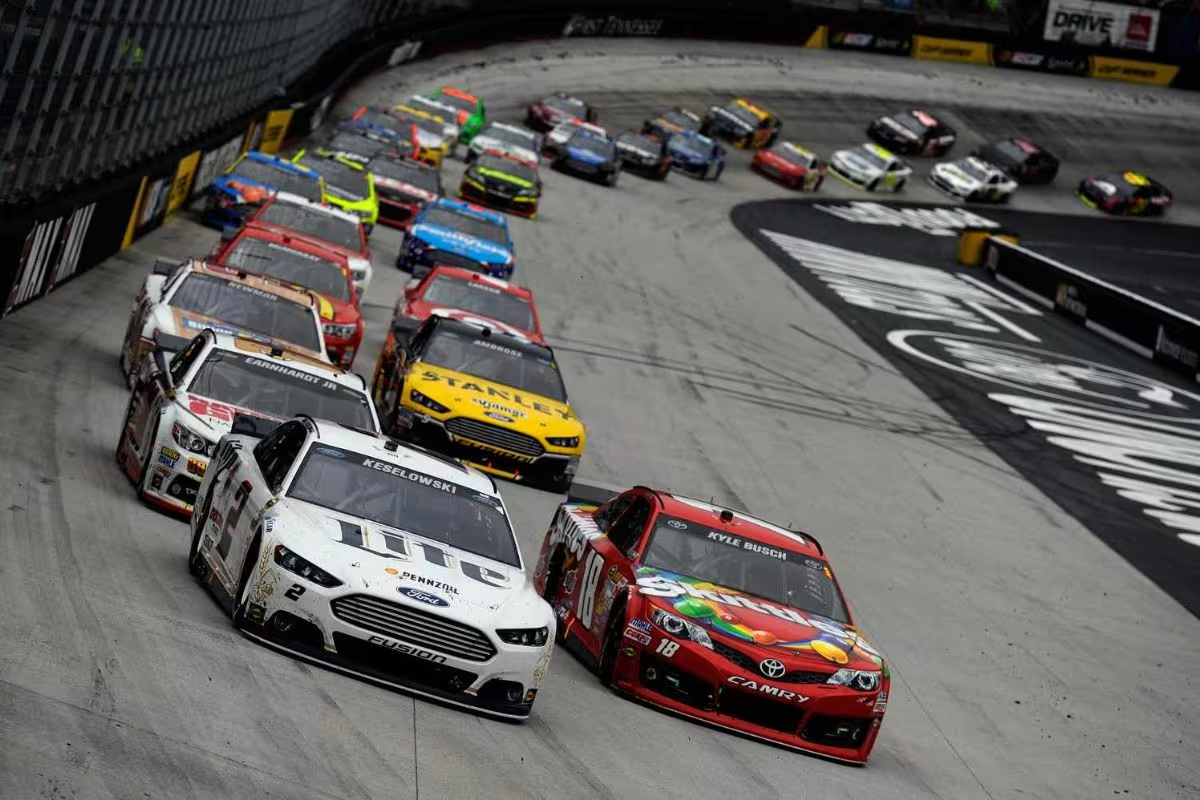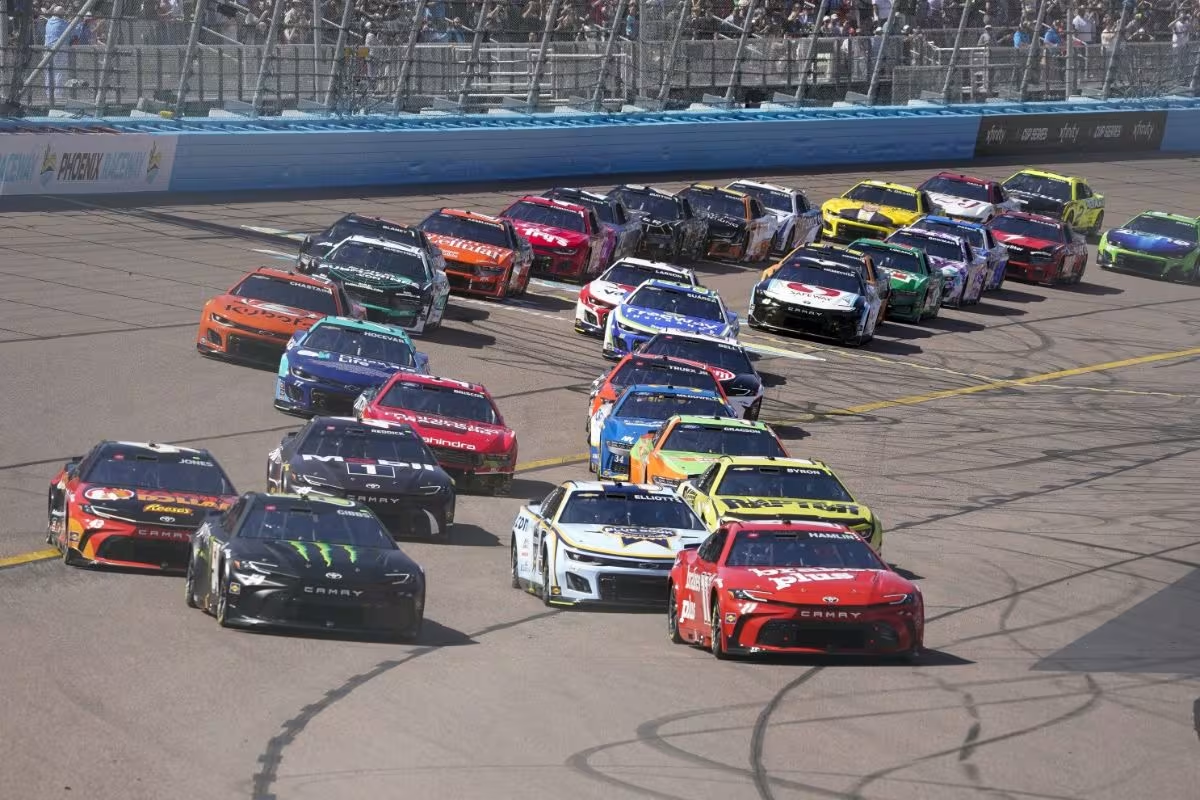Legal expert breaks down NASCAR’s bully tactics, as scrutiny grows over the sport’s actions, especially against smaller teams like 23XI Racing. Allegations suggest NASCAR is using monopolistic practices by controlling race rules, sponsorships, and revenue-sharing, creating an unfair advantage. This could harm smaller teams and may violate anti-trust laws, according to Jeffrey Kessler. As court cases move forward, the outcomes could change NASCAR’s operations and clarify the legality of its practices.
Key Highlights
- Legal experts argue that NASCAR employs coercive charter agreements, limiting smaller teams’ autonomy and competitive opportunities.
- NASCAR’s control over sponsorships and media rights creates significant barriers for rival teams attempting to enter the market.
- Allegations suggest NASCAR manipulates outcomes to disadvantage competitors, raising concerns about fair competition within the sport.
- The dominance of the France family over racetrack operations and vendor relationships fosters a monopolistic environment detrimental to smaller teams.
- Ongoing legal challenges may reshape NASCAR’s competitive landscape, with potential implications for team survival and fan engagement.
Allegations Against NASCAR’s Monopolistic Practices
Numerous allegations have emerged suggesting that NASCAR operates with monopolistic practices that stifle competition and harm smaller teams. Central to these claims is the assertion that the France family, as the sport’s primary ownership, exerts disproportionate control over diverse facets of NASCAR, from racetrack operations to supply vendors and race car specifications. This concentration of power has raised concerns regarding Fair Competition, as it creates an environment where smaller teams, such as 23XI Racing and Front Row Motorsports, struggle to compete on a level playing field.
The financial implications of this monopolistic structure are substantial. Teams that contribute to the entertainment value of NASCAR invest millions in operational costs, often with diminishing returns. The unsustainable financial model is compounded by NASCAR’s control over sponsorships, media rights, and revenue-sharing mechanisms, which appear to favor larger, more established teams. Consequently, the competitive landscape is skewed, leading to an erosion of diversity within the sport.
Critics argue that the monopolistic practices not only restrict competition but also undermine the very essence of motorsport, where innovation and agility should drive success. The ongoing anti-trust lawsuit against NASCAR serves as a critical examination of these allegations, spotlighting the need for reform and greater equity within the NASCAR ecosystem.
Jeffrey Kessler’s Perspective on the Lawsuit
Jeffrey Kessler firmly believes that the NASCAR exemplifies the characteristics of an monopoly. He articulates that the absence of any rival stock car racing series places the France family in a position of power that undermines fair competition and adversely affects race teams. Jeffrey Kessler’s perspective is not solely a reflection of advocacy for his clients; rather, it is grounded in a broader examination of NASCAR’s market dominance.
His assertions can be distilled into three primary points:
- Lack of Competition: Jeffrey Kessler highlights that NASCAR’s monopolistic behavior stifles potential competitors, creating a landscape where alternative racing series cannot thrive.
- Misuse of Power: He points out instances where NASCAR’s influence has been used to manipulate outcomes and decisions in ways that disadvantage rival teams, reinforcing their control over the sport.
- Expert Endorsement: Kessler’s claims gain further credence through support from anti-trust expert Harry First.
"Bullying is bullying, and we don't like bullies. But the antitrust laws actually don't protect companies necessarily from bullying. What they want is competition in the market that helps consumers. So whether NASCAR really has a monopoly is not so clear." https://t.co/SUGnOYUNNW
— Adam Stern (@A_S12) October 16, 2024
While critics may perceive Kessler’s rhetoric as self-serving, the backing of legal experts lends credibility to his arguments.
NASCAR’s Lack of Competition and Historical Context
Operating in a landscape devoid of considerable competition, NASCAR has maintained an iron grip on stock car racing since its establishment in 1947. The France family’s dominance has been steadfast, as they have effectively sidelined any serious rivalries that could threaten their authority. Historical attempts to challenge this structure, particularly by Curtis Turner in 1961, have illuminated the lengths to which NASCAR will go to preserve its monopoly. Curtis Turner’s push for a driver’s union not only demonstrates the recurring themes of dissent but also foreshadows contemporary calls for reform, as seen with 23XI Racing’s 2024 demands.
Despite the introduction of charters aimed at redistributing wealth among teams, NASCAR retains disproportionate control over the sport’s financial ecosystem. The charters serve as a mechanism for teams to participate in revenue sharing, yet the reality remains that NASCAR, under the France family’s stewardship, commands a considerably larger share of the profits. This has led to a persistent environment where competition is stifled, and innovation is constrained, as teams often lack the financial independence to foster growth outside of NASCAR’s stringent framework.
As this historical context continues to shape current dynamics, it raises critical questions about the future of competition in stock car racing. The intersection of financial control and competitive integrity remains crucial, with the sport at a crossroads, echoing struggles from decades past. The implications of this lack of competition extend beyond mere economics; they challenge the very essence of what racing is meant to represent.
Harry First’s Analysis and Potential Legal Challenges for NASCAR
Harry Initial’s recent insights into the ongoing tensions between NASCAR and rival teams illuminate potential legal vulnerabilities within the organization’s operational practices.
During his discussion on the Bloomberg podcast, Initial highlighted that while anti-trust laws do not specifically address bullying, they do promote competition that benefits consumers. He expressed concerns that NASCAR’s tactics—particularly their monopolistic strategies—could lead to considerable legal challenges.
“You know bullying is bullying, but the anti-trust laws don’t protect from bullying. What they want is competition in the marketplace that helps consumers… Some of these things that they’ve allegedly done do sound like the courts have been condemning recently from monopoly firms like exclusives that you can only deal with me. So that could be a problem for NASCAR in litigation.” – Harry First
- Coercive Charter Agreements: Allegations suggest that NASCAR coerced teams into signing charter deals, limiting their autonomy and options. Such actions could be perceived as anti-competitive behavior, ripe for litigation.
- Venue Ownership: NASCAR’s dominance over the majority of racing venues raises questions about fair competition. By controlling vital infrastructure, they may effectively eliminate opportunities for rival organizations and teams, further entrenching their market position.
- Monopoly on Innovation: The introduction of the NASCAR Next-Gen race car, combined with the acquisition of ARCA, suggests a trend toward exclusive control over technological advancements in racing. This could stifle innovation and competition, drawing the ire of regulators.
The Future of 23XI Racing and Potential Outcomes
The ongoing legal battles surrounding NASCAR’s practices have substantial implications for 23XI Racing as it navigates its future in the sport. As the team faces the prospect of losing control over their charter after 2024, their ability to compete as a chartered organization hangs in the balance. Without a charter, 23XI Racing risks entering the Daytona 500 as an open team, which would greatly diminish their competitive edge and financial viability.
The recent filing for a preliminary injunction highlights their commitment to protecting their drivers, employees, and sponsors while pursuing legal action against NASCAR. Harry Primary opines that a settlement is more probable than a protracted legal battle, suggesting that both parties may ultimately find common ground to preserve the integrity of the series.
“My instinct is something’s going to be worked out with the parties. You know, they’re not going to throw everyone out of NASCAR; something will get worked out in some way so that the case can move on and the business can move on. Because that’s in everyone’s interest. They have to prove that an injunction is in the public interest; it’s hard to say if they’re going to be able to succeed with that at this point.” – Harry First
While 23XI Racing’s bold stance in this fight could potentially reshape the landscape of NASCAR, the outcome remains uncertain. The balance between asserting their rights and fostering a cooperative relationship with NASCAR will be essential moving forward.
Should 23XI Racing manage to negotiate favorable terms, they could secure their position as a competitive entity in the series. Conversely, failure to reach an agreement may compel them to reassess their strategy and operations, potentially jeopardizing their long-term sustainability in NASCAR.
News in Brief: Legal Expert Breaks Down NASCAR’s Bully Tactics
The ongoing disputes surrounding NASCAR reveal substantial concerns regarding monopolistic practices and competitive integrity within the sport. Expert analyses indicate that the outcomes of these lawsuits could reshape the competitive landscape for teams like 23XI Racing.
As regulatory scrutiny intensifies, the implications for NASCAR’s operational framework and its relationships with rival teams warrant careful examination. The resolution of these legal challenges may ultimately define the future path of competitive racing in the United States.
ALSO READ: NASCAR’s Latest Officiating Fail—Did They Just Rob Parker Kligerman?




